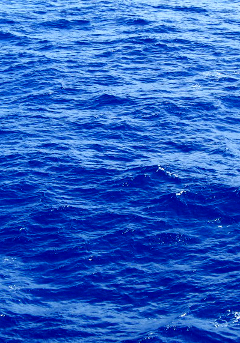Seawater seen for seed growth
 Researchers are working on ways to grow food crops with seawater.
Researchers are working on ways to grow food crops with seawater.
Dr Vanessa Melino at the University of Newcastle is making significant strides towards cultivating food crops that flourish in salty conditions.
With salinity estimated to affect up to 30 per cent of the world's arable land, a significant threat to global agricultural productivity is rising.
Dr Melino's team focuses on the genus Salicornia, a plant known for its remarkable salt resistance.
By applying advanced genetics and genomics, the team aims to transform Salicornia into a profitable oilseed crop capable of thriving in extreme salinity levels, conditions where no other existing food crop can survive.
The research is focused on the molecular mechanisms that enable Salicornia to tolerate high salinity.
“Our research reveals how salt-tolerant plants function on a molecular level to cope in extreme environments,” Dr Melino says.
By understanding these mechanisms, the team says it can breed crops that can be irrigated with saline groundwater or seawater, thus conserving precious freshwater resources.
The findings highlight how Salicornia manages to accumulate high concentrations of sodium in its succulent shoots without suffering ion toxicity.
This is achieved through efficient processes that store sodium in cell compartments via specialised transporters. This understanding opens up possibilities for developing salt-tolerant crops and advancing seawater-based agriculture.
Salicornia, often referred to as 'sea asparagus' due to its crispy, juicy, and salty nature, has potential beyond being a delicacy. Dr Melino envisions its cultivation for vegetable oil and high-protein ingredients.
“By focusing on fats (oil) and protein, we are trying to develop products that can be transported easily and are more sustainable than other sources,” she said.
This development is particularly important as it utilises seawater for irrigation, reducing reliance on limited freshwater resources.
A protein-rich meal from Salicornia can serve as a valuable source of nutrients for humans or be incorporated into fish feed formulations.
“The goal of our research is to help farmers cultivate a food crop in their saline soils using seawater, or brackish water, where they have no other options due to increasing salinisation,” Dr Melino said.
However, domestication of wild plants like Salicornia is a complex and time-consuming process.
To expedite this process, the team is leveraging modern genomic and genetic tools to select and introduce desirable traits for cultivation.
Now based in Australia, Dr Melino is turning her attention to native salt-tolerant plants like Samphire, a relative of Salicornia.
Samphire grows in wetland areas and inland salt lakes in Australia. Indigenous knowledge suggests its seeds were used as a food source in the past. Dr Melino aims to connect with local Elders to learn more about traditional uses of Samphire and explore its potential as a high-value oilseed and alternative protein source.
With over two million hectares of Australian farmland affected by salt, there is a significant opportunity to develop saltwater-tolerant crops.
“If we can produce oilseed crops using saltwater, farmers can reserve their limited freshwater supply for use on other types of food crops,” Dr Melino said.
More details are accessible here.







 Print
Print